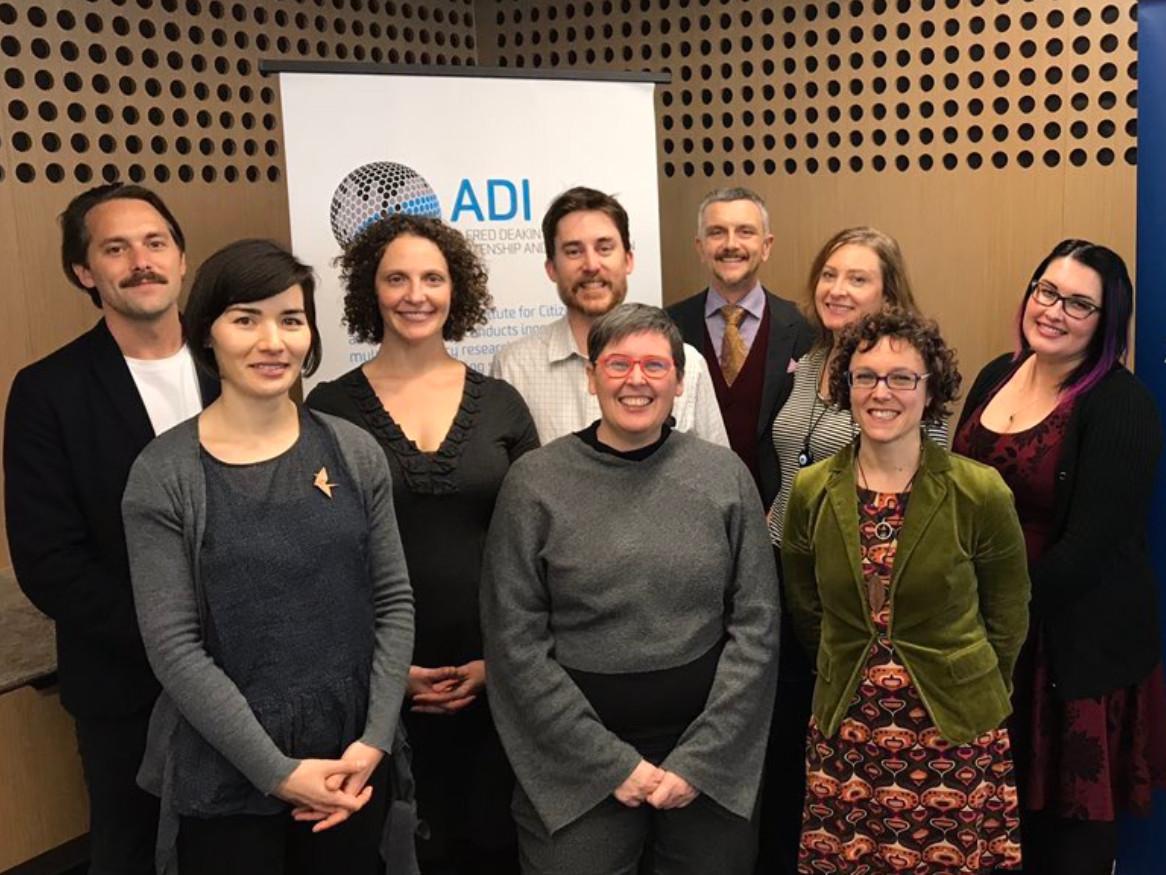Does Nutrition Science (Mis)Inform Our Diets?

We are constantly receiving information on nutrition and food from scientists, government, media, marketers, and our friends and family. But still many of us make poor dietary decisions and fall for diet trends like Paleo, gluten free or superfoods. Does this onslaught of nutrition information (mis)inform our dietary practices?
Food Values researcher Dr Jessica Loyer explored this question with molecular nutrition scientist Dr Emma Beckett from the University of Newcastle at Emerging Issues in Science in Society, held at Deakin University on July 6.
The event brought together four researchers from the social sciences and humanities and four researchers from the sciences to consider pressing topics that effect Australian society from multiple angles. Each session covered the basic science behind the issue, implications for policy and society, and the challenges of science communication and public (mis)conceptions.
The nutrition session explored the disconnect between nutrition science and our food habits, focusing on key issues of interpretation, communication, commodification and policy.
Drawing on research about superfoods media discourses and consumer responses, Jess argued that our nutrition culture is dominated by reductive messages and interpretations of nutrition science. Studies at the nutrient level dominate scientific practice and science communication at the expense of whole diet studies, and they also obscure other measures of food and diet quality, such as production circumstances, taste, heritage, and social setting.
Superfoods display in South Australian natural foods shop, 2015. Photo by Jessica Loyer
Nutritional reductionism encourages people to think that eating healthy is a complicated, technical matter requiring expert advice. It is also easily commodified by food companies eager to promote the latest "hot" nutrient, such as omega-3 fatty acid. Diet trends like superfoods and paleo push back against nutritional reductionism - both its focus on individual nutrients, and the development of highly processed "functional foods."
These "nutritional primitivism" trends feature nostalgic tendencies to idealise the food cultures of ancient or indigenous people as inherently healthier than modern ways of eating. But they don't seek to accurately portray these ancient or traditional food cultures; instead they form a way of critiquing the present. Appeals to tradition, authenticity, and nature imply that modern food and nutrition is too complicated, too processed, and too disconnected.
Dietary trends appeal to people because they speak to their wider values about food and nourishment. Food has many meanings in people's lives, and efforts to communicate healthy eating only in terms of nutrients fall flat because this is not how people experience food.
On a policy level, we might consider shifting dietary guidelines to reflect broader values associated with food and nourishment, such as taste, tradition, authenticity, pleasure, listening to your body, and commensality. We need to recognize that food and nourishment have many meanings beyond the nutrient contents of foods, as we can see in superfoods discourse, and bring these different understandings into research and communications.
This means fostering two-way conversations between nutrition professionals, and eating publics, where we focus on shared values around what makes food “good” for us in various ways, rather than a deficit model approach of simply telling people what they should be eating.

